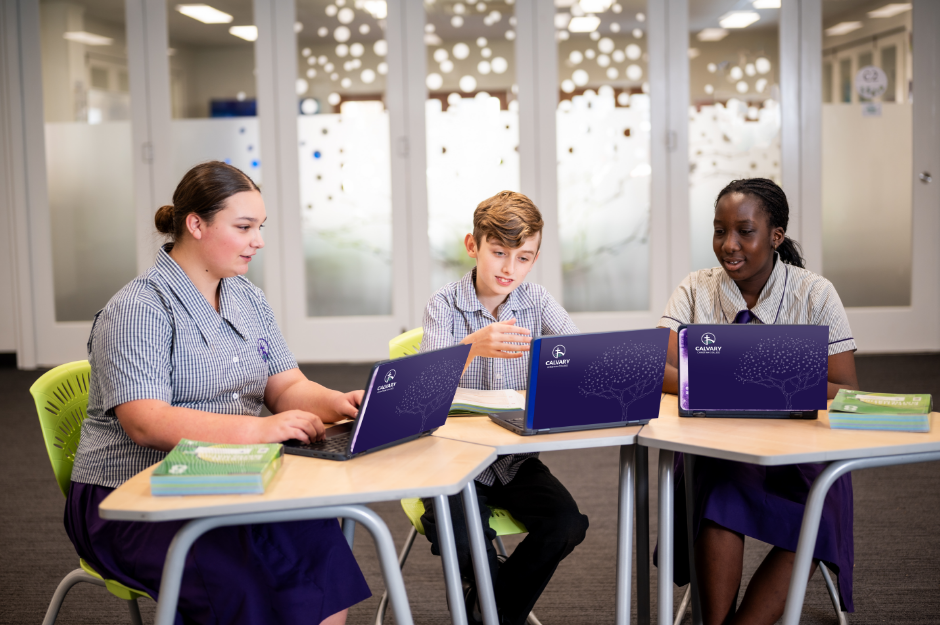At Calvary, Prep learning spaces are thoughtfully designed to create a secure, nurturing environment where every child can grow and thrive. Here, they explore their academic, social, emotional, physical, and spiritual potential. From day one, our experienced Prep teachers focus on building a strong foundation in Literacy and Numeracy.
We recognise that each child’s learning journey is unique. Through play, group rotations, inquiry, and explicit teaching, children develop the skills needed to become confident, happy learners. Our multi-sensory approach supports the consolidation of essential letter sounds, laying the groundwork for reading and writing. Similarly, foundational number concepts and numeracy skills are taught sequentially, providing engaging challenges that encourage grow...
At Calvary, Prep learning spaces are thoughtfully designed to create a secure, nurturing environment where every child can grow and thrive. Here, they explore their academic, social, emotional, physical, and spiritual potential. From day one, our experienced Prep teachers focus on building a strong foundation in Literacy and Numeracy.
We recognise that each child’s learning journey is unique. Through play, group rotations, inquiry, and explicit teaching, children develop the skills needed to become confident, happy learners. Our multi-sensory approach supports the consolidation of essential letter sounds, laying the groundwork for reading and writing. Similarly, foundational number concepts and numeracy skills are taught sequentially, providing engaging challenges that encourage growth.
The early years of learning are most impactful when teachers, students, and parents work together. In partnership with parents, we guide and inspire each child to recognise and celebrate their God-given gifts and talents. This collaboration marks the beginning of their journey to becoming Fearlessly Authentic Learners.







